The Bachelor of Engineering Technology in Civil Engineering BET (Civil) is the first of its kind innovative cooperative model program designed in concert with the construction industry of Pakistan. The BET (Civil) is a technology driven innovative teaching, learning and industrial research-based education system in line with top ranking engineering and technology universities. This Co-Op program links academia and industry to produce practical and field-oriented professionals. With the cooperation of industry, the BET (Civil) curriculum is developed and will actively evolve as per emerging needs of the industry.
The cooperation with industry during dedicated industrial semester is unique to this program. To better train students as per needs of industry, there is one dedicated industrial training in each year targeting different skillset. Before each industrial training there are two academic semesters which cover the theoretical part of the skills that are to be learned in industrial semester. For example, the courses in first year are designed towards the transportation infrastructure industry and thus students will get hands on experience during first industrial training titled Transportation Infrastructure Construction Industry. Furthermore, before the start of each academic year, the identification of potential projects in regards to target skillsets will be done in collaboration with the industrial partners. The necessary administrative arrangements will be made well before the commencement of the industrial semesters. Students will be graded with inputs from industrial supervisors as per pre-defined assessment criteria. The detail of assessment criteria is given in contents of each industrial training and in Annexures E and F.
The set program aims to produce vibrant fieldworkers equipped with the necessary practical toolkit to work with diverse construction companies. The designed program, between NUTECH and industry will assist the students in taking nuanced responsibilities while ensuring meaningful contributions in their job-environment.
Promote academic excellence in Civil Engineering Technology through knowledge, innovation, and applied skills supported with spirt of entrepreneurship, social responsibilities, and ethical practices to best serve society and industry.
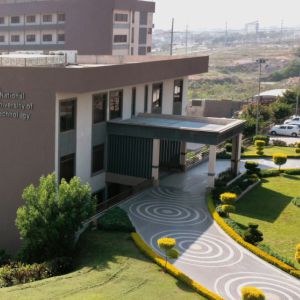
After 3-5 years of graduation, graduate of BET (Civil) will be able to:
Program outcomes are the narrower statements that describe what students are expected to know and be able to do by the time of graduation. These relate to the knowledge, skills and attitude that the students acquire while progressing through the program. PLOs of BET (Civil) program are as under:

| S# | Less Developed Areas | Quota |
| 1 | GB | 10 |
| 2 | AJK | 10 |
| 3 | Ex- FATA | 10 |
| 4 | Sindh (Rural) | 10 |
| 5 | Baluchistan (Rural) | 10 |
| TOTAL | 50 |
Note: 1 x seat is reserved in each program for the students of less developed areas
The following table shows the course offered during 08 regular semesters and 04 Industrial Training in the BET civil engineering program with their credit and contact hours. The courses are distributed in different semesters ensuring compliance with the HEC credit hours’ guidelines for different semesters.
|
SER |
NUTECH Course |
Domain (Core or Related) |
Cr. Hours |
Contact Hours |
||||
|
Theory |
Lab |
Industry |
Theory |
Lab |
Industry |
|||
|
SEMESTER 1 |
||||||||
|
1 |
BETNS1001 Applied Mathematics-I |
Related |
3 |
0 |
0 |
3 |
0 |
0 |
|
2 |
BETCE1102 Materials for Infrastructure Engineering Tech |
Core-Foundation |
2 |
0 |
0 |
2 |
0 |
0 |
|
3 |
BETCE1103 Materials for Infrastructure Engineering Tech Lab |
Core-Foundation |
0 |
1 |
0 |
0 |
3 |
0 |
|
4 |
BETCE1204 Transportation Engineering |
Core-Breadth |
2 |
0 |
0 |
2 |
0 |
0 |
|
5 |
BETCE1205 Transportation Engineering Lab |
Core-Breadth |
0 |
1 |
0 |
0 |
3 |
0 |
|
6 |
BETCE1210 Construction Machinery |
Core-Breadth |
1 |
0 |
0 |
1 |
0 |
0 |
|
7 |
BETCE1211 Construction Machinery Lab |
Core-Breadth |
0 |
2 |
0 |
0 |
6 |
0 |
|
8 |
BETHU1018 English Exposition |
Related |
3 |
0 |
0 |
3 |
0 |
0 |
|
9 |
BETCS2018 Computer Fundamentals Lab |
Related |
0 |
1 |
0 |
0 |
3 |
0 |
|
Total Cr. Hours |
16 |
|||||||
|
SEMESTER 2 |
||||||||
|
10 |
BETCE1110 Applied Mechanics |
Core-Foundation |
3 |
0 |
0 |
3 |
0 |
0 |
|
11 |
BETCE1111 Applied Mechanics Lab |
Core-Foundation |
0 |
1 |
0 |
0 |
3 |
0 |
|
12 |
BETCE1112 Surveying |
Core-Foundation |
2 |
0 |
0 |
2 |
0 |
0 |
|
13 |
BETCE1113 Surveying Lab |
Core-Foundation |
0 |
2 |
0 |
0 |
6 |
0 |
|
14 |
BETCE1114 Drawing and CAD |
Core-Foundation |
1 |
0 |
0 |
1 |
0 |
0 |
|
15 |
BETCE1115 Drawing and CAD Lab |
Core-Foundation |
0 |
2 |
0 |
0 |
6 |
0 |
|
16 |
BETCE1316 Transportation Infrastructure |
Core-Depth |
2 |
0 |
0 |
2 |
0 |
0 |
|
17 |
BETCE1317 Transportation Infrastructure Lab |
Core-Depth |
0 |
1 |
0 |
0 |
3 |
0 |
|
18 |
BETHU4003 Communication Skills & Technical Writing |
Related |
2 |
0 |
0 |
2 |
0 |
0 |
|
Total Cr. Hours |
16 |
|||||||
|
INDUSTRY – YEAR 1 |
||||||||
|
19 |
BETCE1319 Transportation Infrastructure Construction Industry |
Core-Depth |
0 |
0 |
4 |
0 |
0 |
320 |
|
Total Cr. Hours |
4 |
|||||||
|
SEMESTER 3 |
||||||||
|
20 |
BETCE2211 Non-Structural Infrastructure Components |
Core-Breadth |
2 |
0 |
0 |
2 |
0 |
0 |
|
21 |
BETCE2212 Non-Structural Infrastructure Components Lab |
Core-Breadth |
0 |
1 |
0 |
0 |
3 |
0 |
|
22 |
BETCE2203 Basics of Structural Design |
Core-Breadth |
3 |
0 |
0 |
3 |
0 |
0 |
|
23 |
BETCE2104 Geotechnical Engineering |
Core-Foundation |
2 |
0 |
0 |
2 |
0 |
0 |
|
24 |
BETCE2105 Geotechnical Engineering Lab |
Core-Foundation |
0 |
1 |
0 |
0 |
3 |
0 |
|
25 |
BETCE2106 Concrete Technology |
Core-Foundation |
2 |
0 |
0 |
2 |
0 |
0 |
|
26 |
BETCE2107 Concrete Technology Lab |
Core-Foundation |
0 |
1 |
0 |
0 |
3 |
0 |
|
27 |
BETNS2008 Applied Mathematics II |
Related |
3 |
0 |
0 |
3 |
0 |
0 |
|
Total Cr. Hours |
15 |
|||||||
|
SEMESTER 4 |
||||||||
|
28 |
BETCE2309 Civil and Substructure |
Core-Depth |
2 |
0 |
0 |
2 |
0 |
0 |
|
29 |
BETCE2310 Civil and Substructure Lab |
Core-Depth |
0 |
1 |
0 |
0 |
3 |
0 |
|
30 |
BETCE2201 Residential Buildings |
Core-Breadth |
2 |
0 |
0 |
2 |
0 |
0 |
|
31 |
BETCE2202 Residential Buildings Lab |
Core-Breadth |
0 |
1 |
0 |
0 |
3 |
0 |
|
32 |
BETCE2213 Sustainable Development |
Core-Breadth |
2 |
0 |
0 |
2 |
0 |
0 |
|
33 |
BETHU2014 Islamic Studies |
Related |
2 |
0 |
0 |
2 |
0 |
0 |
|
34 |
BETCE2215 Building Regulations Studies |
Core-Breadth |
2 |
0 |
0 |
2 |
0 |
0 |
|
35 |
BETCE2316 Pre-stressed and Precast Concrete |
Core-Depth |
2 |
0 |
0 |
2 |
0 |
0 |
|
36 |
BETCE2317 Introduction to steel structures |
Core-Depth |
2 |
0 |
0 |
2 |
0 |
0 |
|
37 |
|
|
|
|
|
|
|
|
|
Total Cr. Hours |
16 |
|||||||
|
INDUSTRY – YEAR 2 |
||||||||
|
38 |
BETCE2319 Building Construction Industry |
Core-Depth |
0 |
0 |
4 |
0 |
0 |
320 |
|
Total Cr. Hours |
4 |
|||||||
|
SEMESTER 5 |
||||||||
|
39 |
BETCE3101 Environmental Engineering |
Core-Foundation |
2 |
0 |
0 |
2 |
0 |
0 |
|
40 |
BETCE3102 Environmental Engineering Lab |
Core-Foundation |
0 |
1 |
0 |
0 |
3 |
0 |
|
41 |
BETHU3003 Pakistan Studies |
Related |
2 |
0 |
0 |
2 |
0 |
0 |
|
42 |
BETCE3304 Special Infrastructure |
Core-Depth |
3 |
0 |
0 |
3 |
0 |
0 |
|
43 |
BETHU3005 Urban Development Studies |
related |
3 |
0 |
0 |
3 |
0 |
0 |
|
44 |
BETCE3106 Fluid Mechanics |
Core-Foundation |
2 |
0 |
0 |
2 |
0 |
0 |
|
45 |
BETCE3107 Fluid Mechanics Lab |
Core-Foundation |
0 |
1 |
0 |
0 |
3 |
0 |
|
Total Cr. Hours |
14 |
|||||||
|
SEMESTER 6 |
||||||||
|
46 |
BETCE 3308 Irrigation and Hydraulic Structures |
Core-Depth |
2 |
0 |
0 |
2 |
0 |
0 |
|
47 |
BETCE 3309 Irrigation and Hydraulic Structures Lab |
Core-Depth |
0 |
2 |
0 |
0 |
6 |
0 |
|
48 |
BETMS 3110 Entrepreneurship |
Related |
2 |
0 |
0 |
2 |
0 |
0 |
|
49 |
BETCE3311 Quantity Surveying and Cost Estimation |
Core-Depth |
2 |
0 |
0 |
2 |
0 |
0 |
|
50 |
BETCE3312 Quantity Surveying and Cost Estimation Lab |
Core-Depth |
0 |
2 |
0 |
0 |
6 |
0 |
|
51 |
BETMS3213 Occupational Health and safety |
Related |
1 |
0 |
0 |
1 |
0 |
0 |
|
52 |
BETCE3214 Tunneling and Underground Space technology |
Core-Breadth |
3 |
0 |
0 |
3 |
0 |
0 |
|
Total Cr. Hours |
14 |
|||||||
|
INDUSTRY – YEAR 3 |
||||||||
|
53 |
BETCE3315 Special Infrastructure Construction Industry |
Core-Depth |
0 |
0 |
4 |
0 |
0 |
320 |
|
Total Cr. Hours |
4 |
|||||||
|
SEMESTER 7 |
||||||||
|
54 |
BETHU 4001 Project Economics |
Related |
3 |
0 |
0 |
3 |
0 |
0 |
|
55 |
BETCE4202 Bidding and Contract Management |
Core-breadth |
2 |
0 |
0 |
2 |
0 |
0 |
|
56 |
BETNS3001 Numerical Methods and Linear Algebra |
Related |
2 |
0 |
0 |
2 |
0 |
0 |
|
|
BETNS3002 Numerical Methods and Linear Algebra Lab |
Related |
0 |
1 |
0 |
0 |
3 |
0 |
|
57 |
BETCE4304 Building Information Modelling |
Core-Depth |
1 |
0 |
0 |
1 |
0 |
0 |
|
58 |
BETCE4305 Building Information Modelling Lab |
Core-Depth |
0 |
2 |
0 |
0 |
6 |
0 |
|
59 |
BETCE4306 Final Year Project-I |
Core-Depth |
0 |
3 |
0 |
0 |
9 |
0 |
|
Total Cr. Hours |
14 |
|||||||
|
SEMESTER 8 |
||||||||
|
60 |
BETMS4207 Project Management |
Related |
2 |
0 |
0 |
2 |
0 |
0 |
|
61 |
BETMS4208 Project Management Lab |
Related |
0 |
2 |
0 |
0 |
6 |
0 |
|
62 |
BETHU4009 Professional Ethics |
Related |
2 |
0 |
0 |
2 |
0 |
0 |
|
63 |
BETMS4210 Construction Risk Management |
Related |
2 |
0 |
0 |
2 |
0 |
0 |
|
64 |
BETCE4311 Elective |
Core-Depth |
2 |
2 |
0 |
2 |
6 |
0 |
|
65 |
BETCE4312 Final Year Project-II |
Core-Depth |
0 |
3 |
0 |
0 |
9 |
0 |
|
Total Cr. Hours |
15 |
|||||||
|
INDUSTRY – YEAR 4 |
||||||||
|
66 |
BETCE4313 Project Management Industry |
Core-Depth |
0 |
0 |
4 |
0 |
0 |
320 |
|
Total Cr. Hours |
4 |
|||||||
|
Total Cr. Hours of 4 Years |
136 |
|||||||
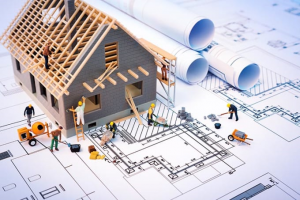
Structural engineering deals with the ‘bones and muscle’ of construction that create man-man structures. Structural engineering theory is based upon applied physical laws and empirical knowledge of the structural performance of different materials and geometries. In addition, it employs the understanding and calculation of the stability, strength, rigidity, and earthquake-susceptibility of structures to be built.
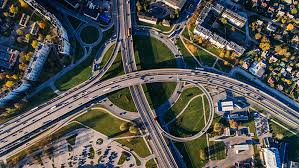
Transportation engineering is a branch of civil engineering that is involved in the planning, design, operation, and maintenance of safe and efficient transportation systems. These systems include roadways, railways, waterways, and intermodal operations.![]()
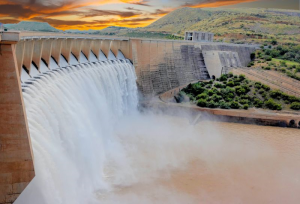
Water resources engineering is the study and management of equipment, facilities, and techniques used to manage and preserve life’s most plentiful resource. In addition to assessing how and the best ways in which to control water as it pertains to water-related activities – such as irrigation, waste disposal and canal development – water resource engineers are also frequently involved in water management to ensure that it’s safe to drink both for humans, plants, and animal usage.
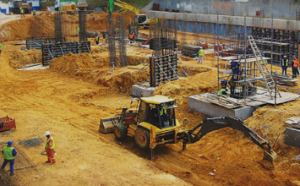
This sub-field of civil engineering is also known as geotechnics. It deals with the engineering behaviour of earth materials. For this, it utilizes the knowledge of other disciplines like hydrology, geology, geophysics, etc. Its applications can be found in mining, offshore constructions, petroleum engineering and more.
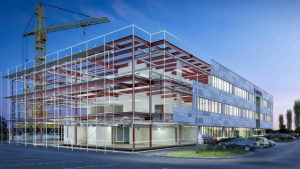
Construction engineering and management refers to the use of critical thinking in technical and scientific fields to improve a construction project. It enables engineers to oversee a building project from start to finish, coordinating all the different professionals involved in such a project, including architects, builders, electricians, plumbers, and financiers. Much of construction management involves keeping risk to a minimum by focusing on safety and compliance with local, state, and federal building codes. In addition, it employs new technologies such as building information modelling, virtual reality, and other visualization tools to improve construction techniques.
| Ser No | Publication Title | Authors | Category | Year of Publication |
| 1 | Evaluation of a gamified e-learning platform to improve traffic safety among elementary school pupils in Belgium | Dr. SARMAD RIAZ | Journal | 2019 |
| 2 | Observing the observation of (vulnerable) road user behaviour and traffic safety: A scoping review | Journal | 2019 | |
| 3 | Evaluation of a Road Safety Education Program Based on Driving Under Influence and Traffic Risks for Higher Secondary School Students in Belgium | Journal | 2019 | |
| 4 | The State-of-the-Art in the application of Artificial Intelligence-Based Models for Traffic Noise Prediction | Journal | 2024 | |
| 5 | Serviceability Analysis of Pedestrian Overhead Bridges and Underpasses | Journal | 2023 | |
| 6 | Strategic Utilization of Microsimulation for Sustainable Traffic Analysis and Intersection Improvement | Journal | 2023 | |
| 7 | Child Pedestrian Safety: Study of Street-Crossing Behaviour of Primary School Children with Adult Supervision | Journal | 2022 | |
| 8 | Conservation environments’ effect on the compressive strength behaviour of wood–concrete composites | Journal | 2022 | |
| 9 | Sub-Surface Geotechnical Data Visualization of Inaccessible Sites Using GIS | Journal | 2022 | |
| 10 | Study using machine learning approach for novel prediction model of liquid limit | Journal | 2022 | |
| 11 | Integration of gamification in a traffic education platform for children | Conference | 2018 | |
| 12 | A framework for sustainable transport using microsimulation-Evaluation of traffic progression at an intersection in Rawalpindi,Pakistan | Conference | 2024 | |
| 13 | Development of a digital learning platform embedded with gamification elements to improve traffic insight among pupils of elementary school | Conference | 2018 | |
| 14 | Observing observation of road user behaviour: A scoping review into current practices in scientific literature. | Conference | 2017 | |
| 15 | Observing observation of road user behaviour: A scoping review into current practices in scientific literature. | Conference | 2017 | |
| 16 | Simulation-Based Site Amplification Model for Shallow Bedrock Sites in Korea | Dr. M. AQIB | Journal | 2021 |
| 17 | A Site-Specific Response Analysis: A Case Study in Hanoi, | Journal | 2020 | |
| Vietnam | ||||
| 18 | Development of Simulation Based p-Multipliers for Laterally Loaded Pile Groups in Granular Soils using 3D Nonlinear Finite Element Model | Journal | 2020 | |
| 19 | Evaluation of Site Amplification Factors for Shallow Rock Sites of Islamabad, Pakistan | Journal | 2021 | |
| 20 | Liberation Studies of Padhrar Coal By Using Fractionation Method, XRD Analysis and Megascopic and Microscopic Techniques | Journal | 2016 | |
| 21 | Evaluation of Influence of Shear Strength Correction Through a Comparative Study of Nonlinear Site Response Models | Journal | 2021 | |
| 22 | A site-specific response analysis: a case study in Hanoi, Vietnam. | Journal | 2020 | |
| 23 | Development of simulation-based p-multipliers for laterally loaded pile groups in granular soil using a 3D nonlinear finite element model. | Journal | 2020 | |
| 24 | Evaluation of the influence of shear strength correction through a comparative study of nonlinear site response models. | Journal | 2020 | |
| 25 | Evaluation of seismic site amplification using 1D site response analyses at Ba Dinh square area, Vietnam | Journal | 2021 | |
| 26 | Site-specific seismic hazard analysis of monumental site Dharahara, Kathmandu, Nepal. | Journal | 2022 | |
| 27 | Numerical response of pile foundations in granular soils subjected to lateral load. | Journal | 2022 | |
| 28 | Development of site classification system and seismic site coefficients for Korea. | Journal | 2022 | |
| 29 | Estimation of VS30 using shallow depth time-averaged shear wave velocity of Rawalpindi–Islamabad, Pakistan. | Journal | 2023 | |
| 30 | Evaluation of Empirical SPT N-Vs Correlations Using 1D Site Response Analysis for Shallow Bedrock Sites in Islamabad, Pakistan. | Journal | 2024 | |
| 31 | Importance of Implied Strength Correction for 1D Site Response at Shallow Sites at a Moderate to Low Seismicity Region | Conference | 2018 | |
| 32 | Seismic Retrofitting of Reinforced concrete shear walls using carbon fiber reinforced polymers(CFRP) | Engr. ALI SIDDIQUE | Journal | 2020 |
| 33 | Seismic assesment of mid-rise buildings in Pakistan | Conference | 2018 | |
| 34 | Seismic assesment of high-rise buildings in Pakistan | Conference | 2019 | |
| 35 | Spalling sensitivity and mechanical response of an ecofriendly sawdust high strength concrete at elevated temperatures | Engr. EHSAN ULLAH KHAN | Journal | 2020 |
| 36 | An efficient approach to incorporate soil-structure interaction effects for practicing engineers | Engr. M. WAQAS | Conference | 2019 |
| 37 | Self-Consolidating Paste Systems Containing Acacia Nilotica Gum Powder | Engr. SANA GUL | Journal | 2019 |
| 38 | Use of Acrylic polymer for stabilization of clayey Soil | Journal | 2018 | |
| 39 | Limitations of Non-linear Analysis of Multi-storey Structures - A Review | Conference | 2020 | |
| 40 | Concrete Containing Recycled Rubber Steel Fibre | Conference | 2019 | |
| 41 | Seismic Construction Practices of Commercial RCC Buildings via Visual Inspection in Developing Countries. | Conference | 2018 | |
| 42 | Using Polypropylene Fibers in Concrete to achieve maximum strength | Conference | 2018 | |
| 43 | DYNAMIC NAIVE BAYES CLASSIFIER FOR HYDROLOGICAL DROUGHT RISK ASSESSMENT | Dr.Nouman | Journal | 2023 |
| 44 | Serviceability Analysis of Pedestrian Overhead Bridges and Underpasses. | Journal | 2023 | |
| 45 | Application of hidden Markov Bayesian classifier for probabilistic assessment of meteorological and hydrological drought taking concept of propagation. | Journal | 2020 | |
| 46 | Investigating effect of climate change on drought propagation from meteorological to hydrological drought using multi-model ensemble projection. | Journal | 2019 | |
| 47 | Probabilistic characteristics of drought propagation from meteorological to hydrological drought in South Korea. | Journal | 2019 | |
| 48 | Probabilistic analysis of drought propagation over the Han River basin under climate change. | Journal | 2019 | |
| 50 | Probabilistic characteristics of lag time between meteorological and hydrological droughts using a Bayesian model. | Journal | 2018 | |
| 51 | Feasibility assessment of newly isolated calcifying bacterial strains in self-healing concrete | Dr.Nafeesa | Journal | 2023 |
| 52 | Experimental evaluation of bacterial self-healing concrete embodying Bacillus pumilus cured in normal and accelerated modes | Journal | 2023 | |
| 53 | Feasibility assessment of microwave-cured lightweight aggregate concrete by mineral encapsulated self-healing | Journal | 2023 | |
| 54 | Self-Healing Nano-Concrete for Futuristic Infrastructures | Journal | 2022 | |
| 55 | Bio-inspired self-healing and self-sensing cementitious mortar using Bacillus subtilis immobilized on graphitic platelets | Journal | 2022 | |
| 56 | Mechanical and energy performance of variably cured Effective Microorganisms cementitious composite designed via Taguchi | Journal | 2021 | |
| 57 | Isolation of alkaliphilic calcifying bacteria and their feasibility for enhanced CaCO3 precipitation in bio-based cementitious composites | Journal | 2021 | |
| 58 | Synthesis and characterization of bio- immobilized nano/micro inert and reactive additives for feasibility investigation in self-healing concrete | Journal | 2019 | |
| 59 | Bio-mineralized self-healing recycled aggregate concrete for sustainable infrastructure | Journal | 2020 | |
| 60 | Bio-immobilized Limestone Powder for Autonomous Healing of Cementitious Systems: A Feasibility Study | Journal | 2018 | |
| 61 | Bio- inspired self- healing cementitious mortar using Bacillus subtilis immobilized on nano/micro additives | Journal | 2018 | |
| 62 | Economic assessments of inhibiting technologies for greenhouse gas emission | Conference | 2024 | |
| 63 | Economic assessment and environmental challenges of CO2 storage through mineral carbonation | Conference | 2024 | |
| 64 | Influence of bio-immobilized lime stone powder on self-healing behaviour of cementitious composites | Conference | 2018 | |
| 65 | Improving the mechanical properties of cementitious composites with graphite nano/micro platelets addition | Conference | 2018 | |
| 66 | Investigation of shear capacity of Pre-stressed concrete beams using Response-2000 | Conference | 2017 | |
| 67 | BIM AIDED INFORMATION AND VISUALIZATION REPOSITORY FOR MANAGING CONSTRUCTION DELAY CLAIMS | Engr. ALI TARIQ | Journal | 2021 |
| 68 | Servicibility Analysis of Pedestrian Overhead Bridges and Underpasess | Engr. Fazal e Gahfoor | Journal | 2023 |
| 69 | Strategic Utilization of Microsimulation for Sustainable Traffic Analysis and Intersection Improvement | Journal | 2023 | |
| 70 | To study the serviceability of Pedestrian Bridges and Underpasses in Pakistan | Conference | 2021 | |
| 71 | Study of Gross Vehicular Weight and Axle Configuration of Heavy Vehicular Transport Specifications in Peshawar | Conference | 2019 | |
| 72 | A framework for sustainable transport using microsimulation-Evaluation of traffic progression at an intersection in Rawalpindi,Pakistan | Conference | 2024 |